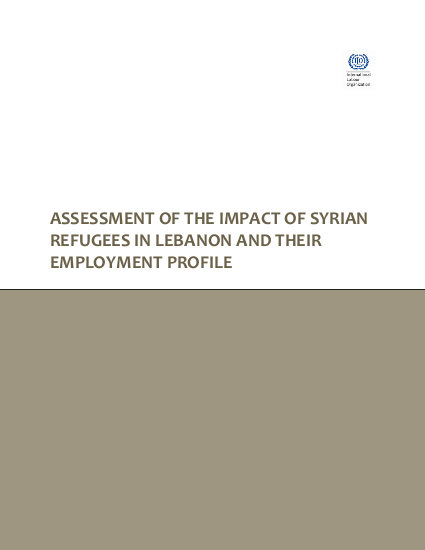
The deterioration of the security and humanitarian situation in Syria as a result of the ongoing crisis has forced thousands of Syrians to flee and seek refuge in neighbouring countries, including Lebanon. According to UNHCR estimates, by early 2014 Lebanon was a host to 927,638 Syrian refugees in Lebanon, of whom 879,907 are registered with the UNHCR, representing around 21 per cent of the total population in the country. While Lebanon is neither a signatory to the UN Convention Relating to the Status of Refugees nor its 1967 Protocol, the government maintains an “open border” policy whereby registered Syrian refugees can live and work in Lebanon. This implies a significant social economic impact on Lebanon, including an impact on the labour market.
In order to assess this impact and identify the ramifications of an increasing number of Syrian refugees (many of whom will be seeking work) the ILO implemented an assessment of their impact and a survey of their employment status in four regions (Akkar, Tripoli, Beqaa, and the South). The objective was to provide a better understanding of the evolving situation of increasing numbers of Syrian refugees. The study focused on the employment profile of refugees and the potential impact of their economic participation on their host communities’ livelihoods.
For the current assessment, data was collected from 400 households, which included a total of 2,004 individuals.